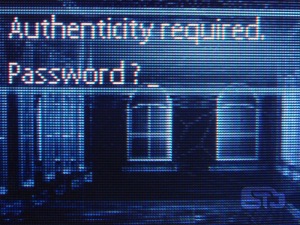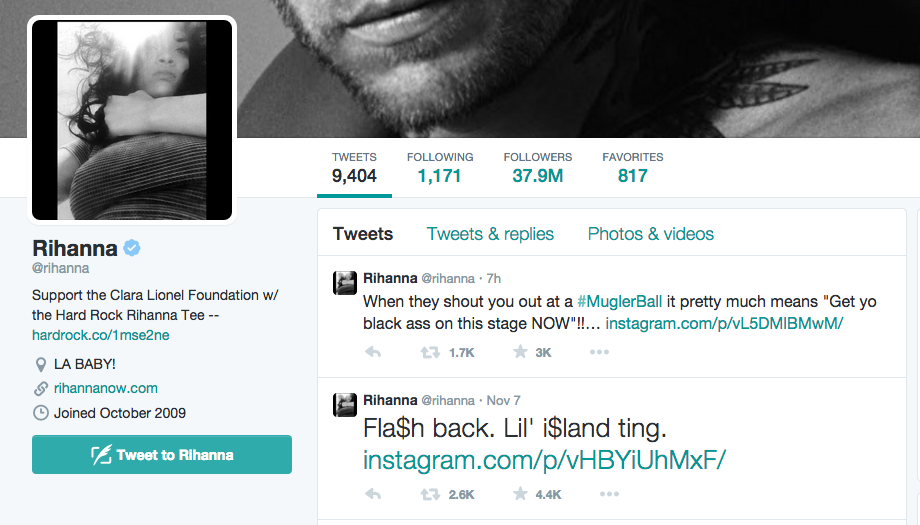Developing Authentic Online Profiles
Authenticity: Of undisputed origin and not a copy; genuine
Outside of the web we determine authenticity through appearance, human interactions and ID cards. On the web these methods aren’t plausible due to the fundamental lack of face-to-face contact. So how do we perceive others authenticity online? As discussed in the previous topic, the ease at which we can create multiple bogus accounts has led to a minefield of profiles online.
Reputation is our best method for determining authenticity on the web. As we have no true way of knowing someone is who they say they are (those of us who don’t work for MI5 that is). We must rely on ‘the word on the street’. For example if you wanted to find Rihanna’s instagram account, you wouldn’t type ‘Robyn Rihanna Fenty’ into the search bar. You would have to google ‘What is Rihanna’s Instagram name’ and infer from the number of followers and the content uploaded whether it is her actual account (If you were wondering her Instagram account name is actually badgirlriri). This process is essential for us to be able to differentiate between the hundreds of bogus accounts under her name and her real Instagram. Granted this problem has been addressed by Facebook and Twitter, that now verify official accounts with a blue tick, but it is impossible for them to verify every business/person.
So in reality they have only verified celebrities and large businesses (a very small handful of the millions that use Twitter and Facebook).
To develop an authentic online profile you should create accounts across multiple services (Facebook, Twitter, Instagram, LinkedIn etc.) Ideally all with the same name and each site should have links to your accounts on other services. This gives you a consistent online presence. You should also ensure that you are active on these sites with genuine input. Giving the impression of credibility – an empty profile screams FAKE to anyone. And if suitable, you should make sure the display pictures are clear pictures of yourself. The most important thing is that these pages are supposed to be professional, so their content should be professional, not controversial or pictures of your nights out.
Stage names help artists and organisations separate themselves from their personal lives, keeping their business/hobbies professional. Lots of people in the public eye have two accounts on social media sites. One being their personal account, with high privacy settings, which only their close friends and family can see. And then a second public account, which is open for everyone to see. This allows them to post private updates without the worry of it affecting their public personas. However all of us are could benefit from doing this. With companies checking social media accounts of potential job applicants, it is more important than ever. A survey in 2012 indicated that 37% of prospective employers were checking Facebook profiles. It wouldn’t surprise me if this percentage is even higher today.
Dom


